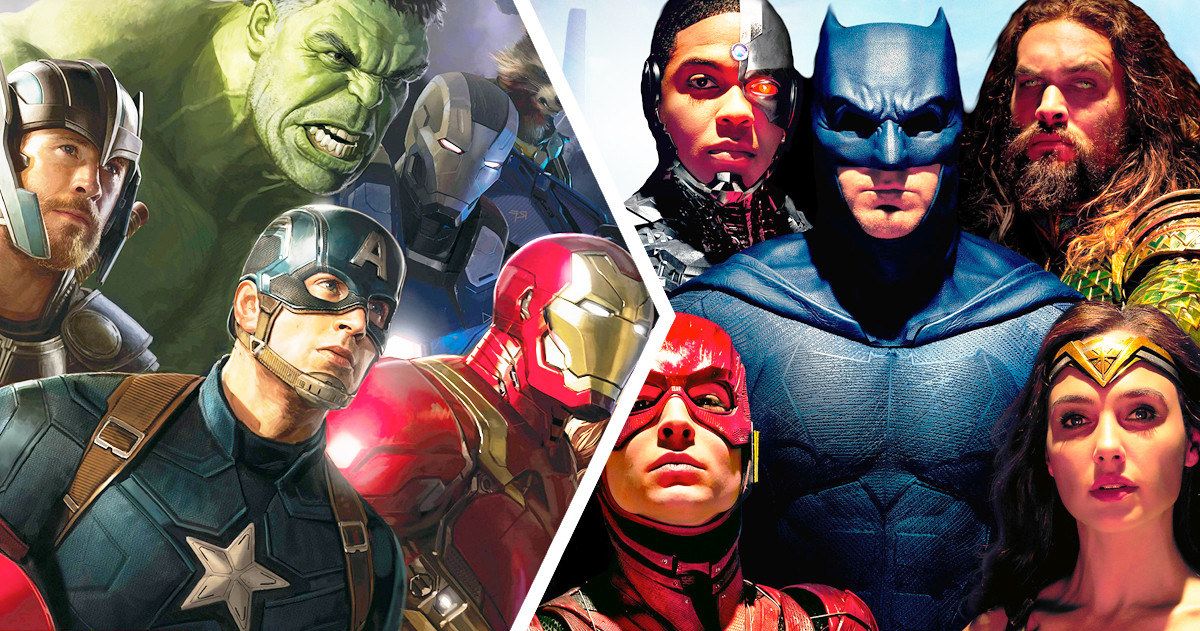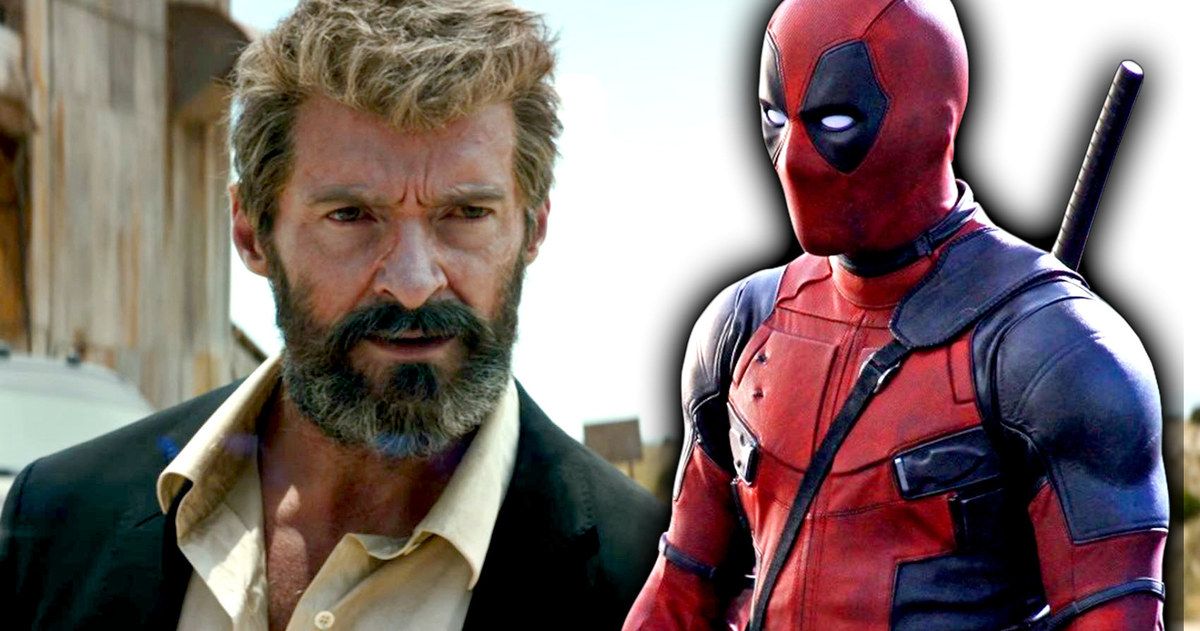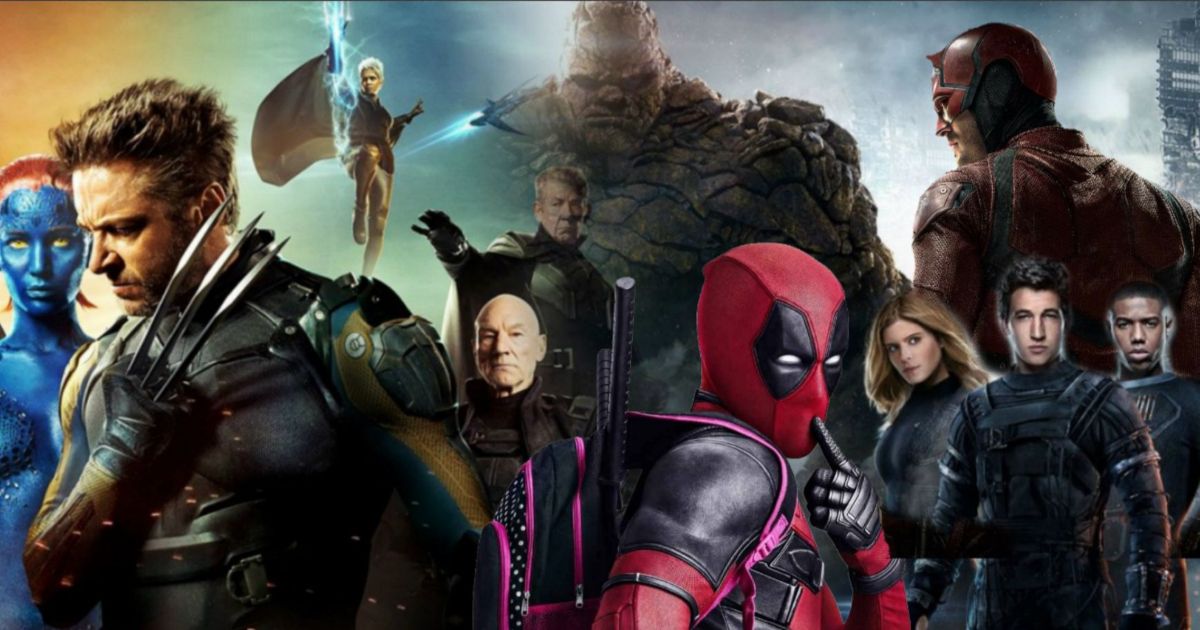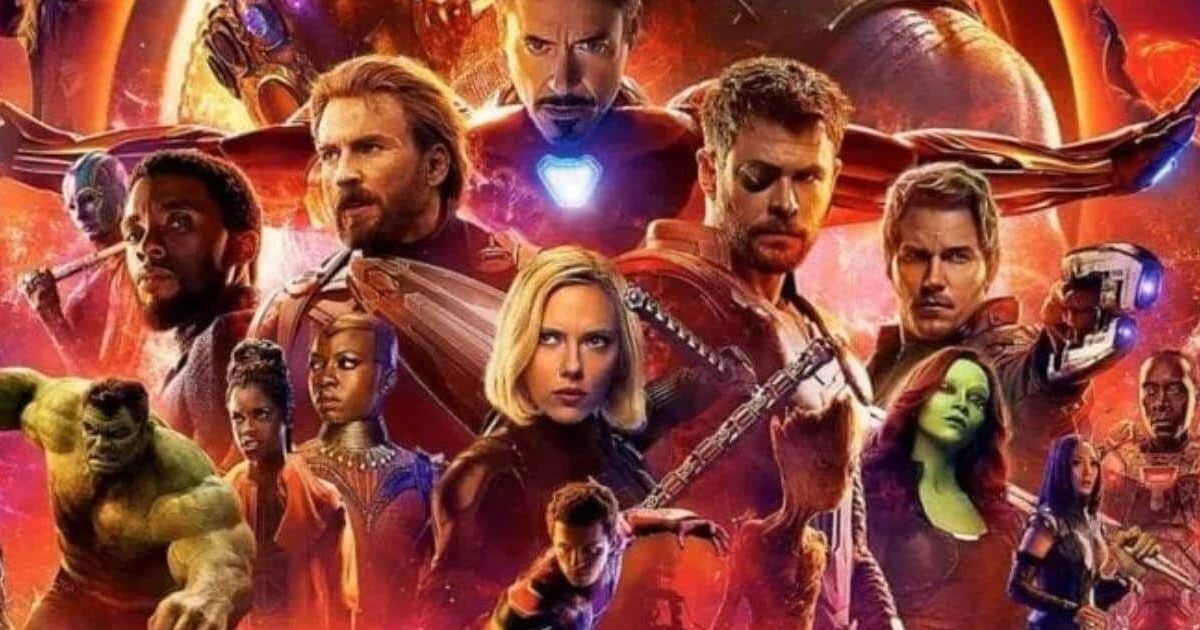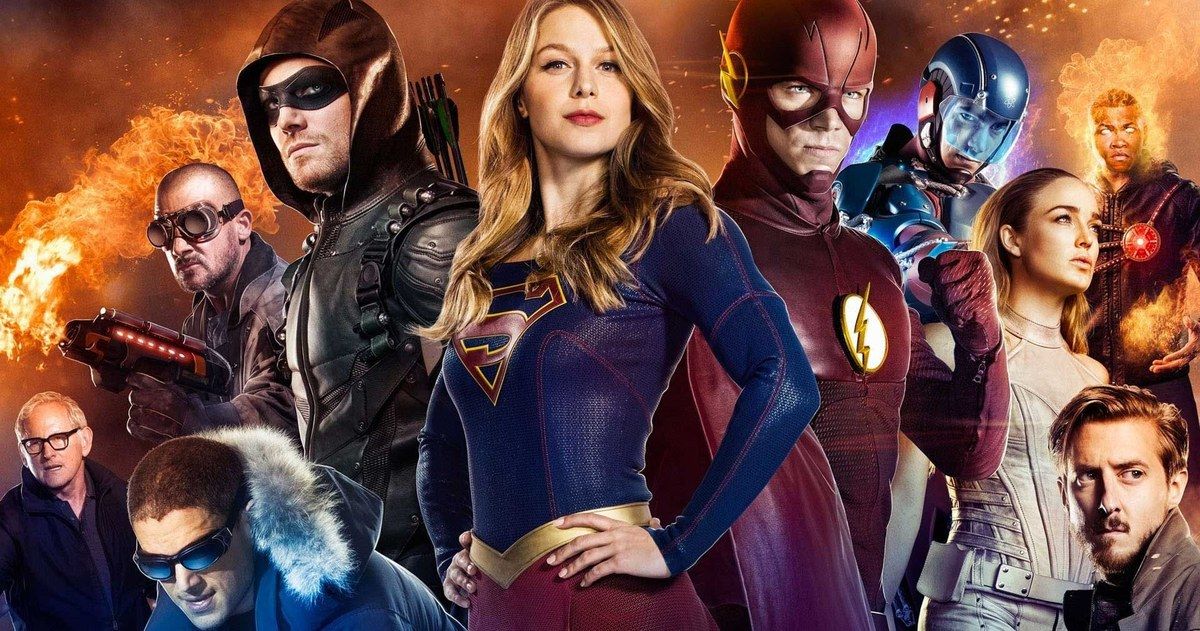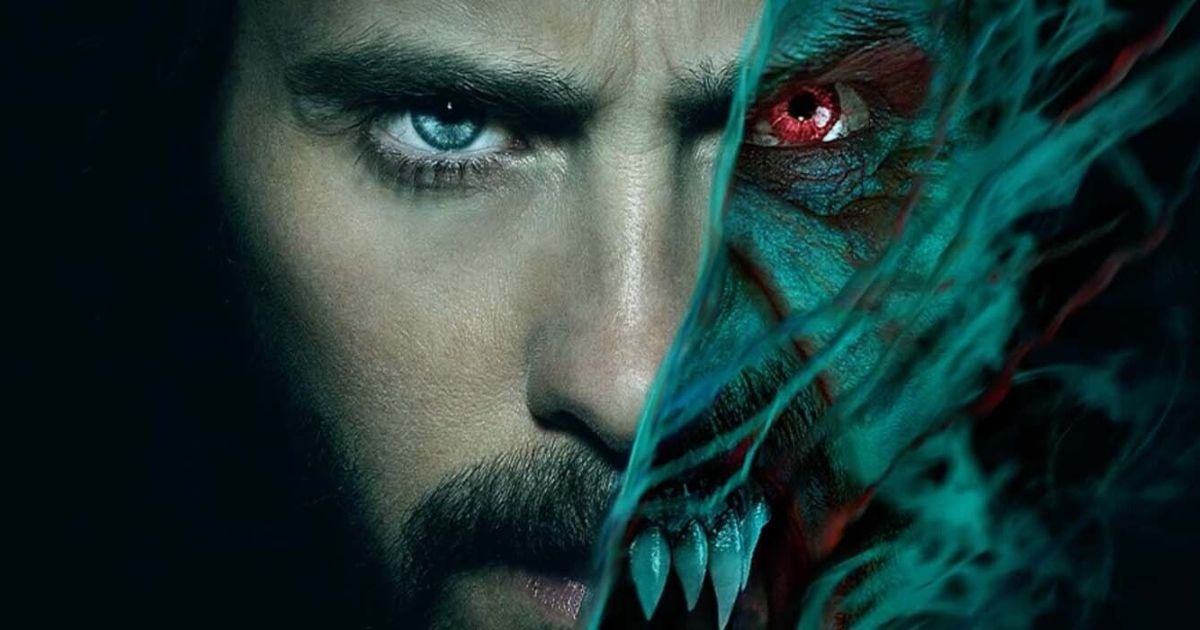There is no doubt about it that the superhero is arguably more popular now than ever before. While the concept has been around for roughly 100 years, give or take (depending on if one considers pulp heroes the first superheroes or mark it with Superman in 1938), it appears that they have a stronger hold on pop culture now more than ever. Comic books themselves used to be a niche medium, and adaptations of superheroes were few and far between for decades. Only a few key characters received live-action film and television series, and just a few animated series; superheroes were not the dominant pop-culture force.
That all changed at the dawn of the 21st century, as CGI technology finally caught up to realize some of the most famous superheroes. While occasionally there would be two or three adaptations a year, as time went on superheroes became a bigger force in theaters and on television. Now it isn't just Marvel and DC heroes, but publishers like Image and Dark Horse have seen their comics become adapted into popular television series. Disney+, HBO Max, Netflix, Amazon Prime, and Hulu have opened the door for superhero stories to cross multiple forms of media, and it doesn't seem to be slowing down anytime soon.
The MCU is now 14 years old and has multiple films and television series still coming down the pipeline. The Arrowverse on the CW will celebrate its ten-year anniversary in September while the DCEU will celebrate its ten-year anniversary next summer. There are more superheroes on film and television than ever before. Yet with all of this exposure, will it ever end? How many superheroes can general audiences accept? At what point does it become too much? Maybe it won't ever be enough? Let's take a look to see if there is a peak for all these superhero stories.
The Genre Life Cycle Comes in Waves
Genres are typically defined in a cycle, with four phases: primitive, classical, revisionist, and parodic. Primitive is when a genre is still finding itself, while classical is what an audience generally accepts as the fundamentals of the genre, with revisionists examining the genre from a new angle, and finally the parodic that mocks these genre conventions.
The superhero genre in many ways is hard to pin down, because one could make an argument that the primitive state starts with the Christopher Reeves Superman films and the first four Batman movies, or well into the 2000s with films like X-Men, Hulk, and Hellboy still figuring out what a superhero movie was. Yet in many ways, Spider-Man in 2002 shaped what the genre would become, with films like Fantastic Four and the later MCU films drawing heavily from it.
Then, the MCU could be seen as the classical period as it has had the largest influence on what audiences expect from a superhero movie and how Hollywood makes them. Revisionist superhero stories have, in a sense, been happening with films like The Dark Knight, Watchmen, and Logan, all while simultaneously existing alongside parodic entries like Kick-Ass, Deadpool, and Green Hornet. With the cycles co-existing so closely and often overlapping, sometimes in a single year, it speaks to the enduring nature of the material.
The Superhero Cycle Continues
In many ways, seven years appear to be the new mark. Seven years after the release of X-Men saw a string of superhero movies that were panned by critics and hardcore fans alike, such as Spider-Man 3, Fantastic 4: Rise of the Silver Surfer, and Ghost Rider, and it almost seemed like the genre might be done. However, it got a second wind just one year later in 2008 with the release of The Dark Knight and Iron Man, both fundamentally shifting the trajectory of the superhero film.
Seven years after that, in 2015, there seemed to be another wave of disinterest as Avengers: Age of Ultron was seen as a letdown for many audience members, Fant4stic was an outright box office bomb and critical failure, and Ant-Man was underwhelming despite some positive attention. Audiences seemed more preoccupied with big legacy sequels like Mad Max: Fury Road, Jurassic World, Creed and Star Wars: The Force Awakens. Had it not been for the somewhat revisionist superhero TV shows Daredevil and Jessica Jones that very same year, the death of the superhero might have been declared right then in there.
Yet in 2016, Deadpool successfully spoofed the genre with some nihilistic ironic parody, while Captain America: Civil War and Doctor Strange gained positive reviews and fine box office figures that offset the more critical reaction to Batman V Superman: Dawn of Justice, Suicide Squad, and X-Men: Apocalypse. It now comes in turbulent waves, sometimes all within the same year, making it difficult for superheroes to ever truly go away.
Diversifying Genre Has Been the Key to Superhero Survival
The term 'superhero movie' is a rather broad descriptor. While they do tend to follow a standard structure, it is a similar one found in most conventional Hollywood stories. This is often referred to as the hero's journey or the monomyth, outlined in Joseph Campbell's book The Hero with a Thousand Faces. Yet what makes the narratives different are the specific details, and when it comes to superhero stories, it's the distinct genres and characters that allows for so much variety.
The MCU has been the best at this, as each hero fits a specific niche for audiences. The Ant-Man films fit a very specific family comedy tone similar to classic Disney films like Flubber, while Guardians of the Galaxy is a cosmic sci-fi adventure. Meanwhile, Ms. Marvel on Disney+ has a very teenage-centric light-hearted tone where it has more in common with John Hughes movies than the Iron Man films. There has been a criticism that the MCU movies have a homogenized look, and while opinions may vary on how true that is the studio has attempted to branch out with films like Eternals, Doctor Strange in the Multiverse of Madness, Thor: Love and Thunder, and Disney+ series like She-Hulk and WandaVision which are all drastically different from one another.
The DCEU has given a greater sense of creative control and freedom to filmmakers to craft stories using the heroes. Patty Jenkins got to tell two very different genre stories with Wonder Woman, one as a World War I picture similar while the sequel was clearly aiming for tone and style like a 1980s action/comedy film and stylistically closer to Superman 2 than a film in the DCEU. Birds of Prey embraced an R rating with a pop-punk riot girl aesthetic which distinguished it from any other superhero film, while The Suicide Squad was allowed to be a loose sequel to the 2016 film while also going for an entirely different visual aesthetic. All these approaches reach a wider audience, where even if not every superhero story is for everyone, everyone can find a superhero story for them.
Superheroes Have Not Dominated Television the Same Way as Film
Superhero movies are some of the most popular films, with multiple superhero films being the highest-grossing films of their respective year. During the re-opening of theaters during the COVID-19 pandemic in 2021, the superhero genre consistently drew audiences back out. Yet for all the talk about how superheroes are everywhere, the superhero domination, particularly regarding television, has greatly been exaggerated.
While the CW has a successful line of superhero series on their network, their ratings are drawn by traditional broadcast numbers from shows like Supernatural in the past and Legacies, Riverdale, All American and others today. HBO Max's Peacemaker, Doom Patrol, and Harley Quinn have garnered critical acclaim and a fair share of audiences, yet HBO gets more viewers for shows like Succession and Euphoria. Even on Disney+, the MCU series which are likely the most popular superhero shows on television in terms of audience viewership, still tend to fall behind the Star Wars series. Non-DC and Marvel adaptations like The Boys and Invincible on Amazon Prime and Umbrella Academy on Netflix have been huge hits, they are still just a few of many shows both companies provide and are one factor in their success.
Series like Yellowjackets, Severance, The Crown, Stranger Things, and Yellowstone dominate the cultural conversation in ways that many superheroes shows don't, showcasing that audiences still want a wide array of stories. There are more superhero stories on television than ever before, yet there are just as many (and arguably many more) series focused on law enforcement and medical professionals, and while people joke there are too many of those, they still keep making them and there are no signs of slowing down. Perhaps asking if the superhero genre has reached its peak is like asking if the police procedural drama is going away anytime soon, and if the market oversaturated for that?
What Will Bring Superheroes Down?
There is no one answer to what will bring down the recent superhero boom, because if there was a clear answer every studio would avoid it. Unlike in 1997, when Batman and Robin could kill the entire enterprise, these films are not made one at a time anymore, so if one fails, another will shortly arrive, and hopefully the genre will rebound. Even a string of bad films may not be enough to bring it down, because since 2010 there have been critically reviled superhero films like Green Lantern, Ghost Rider: Spirit of Vengeance, Suicide Squad, Fant4stic, and X-Men: Dark Phoenix, all of which have not hurt other superhero films. Just this year, Morbius was both a critical and financial bomb, yet that didn't keep audiences away from Doctor Strange in the Multiverse of Madness, which grossed $900 million worldwide, while The Boys and The Umbrella Academy are still drawing in viewers on streaming platforms.
There is a chance that just the large amount of output of material might be too alienating for audiences; after all, it was years of continuity that made Star Trek so impenetrable for many audience members that the franchise needed a reboot in 2009. With a new Marvel entry all year round, it might become too much and some audience members may jump off or just stick with their preferred corner (after all, one does not need to watch Moon Knight to appreciate or understand what is happening in Guardians of the Galaxy Vol. 3). Yet with many of the entries being readily available on streaming, as well as the rise in recap and explainer videos on YouTube, there will always be a way for audiences to get caught up quickly. It only feels like homework if they don't enjoy it, and if they don't enjoy it they will likely tune out.
The multiverse concept that many are using might overcomplicate the franchises for some, but for an entire generation, these concepts are the norm and something they just embrace. It may never go away entirely. Like the long-running franchises Star Wars, Star Trek, Doctor Who, Power Rangers, and Pokémon, superhero stories may just stick around. They may not always be the centerpiece that they are today, but it appears that they aren't going away anytime soon.

